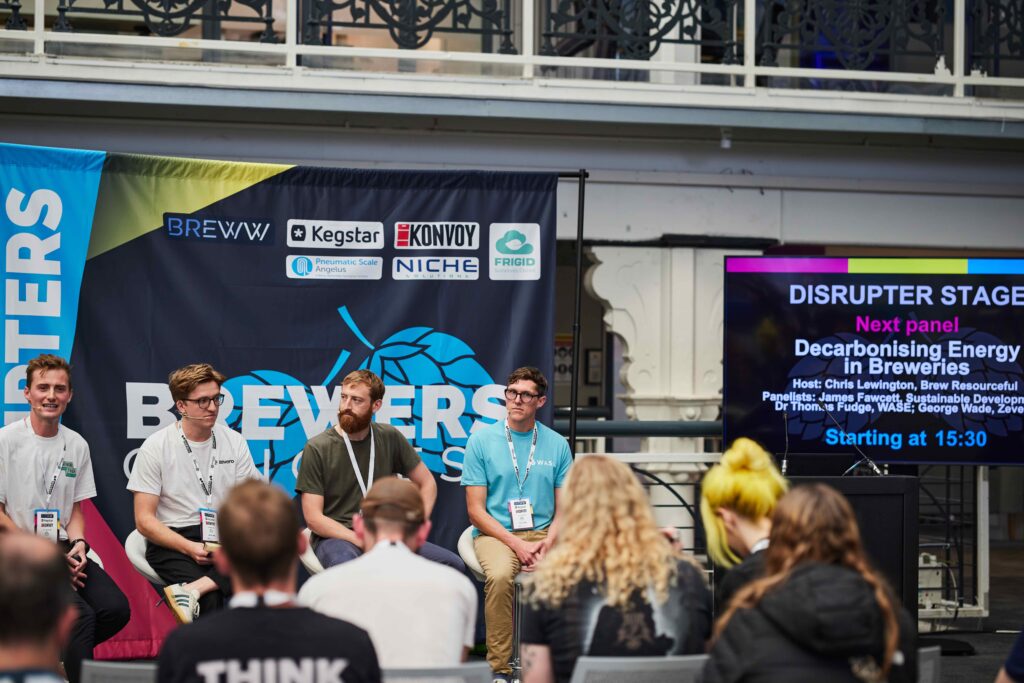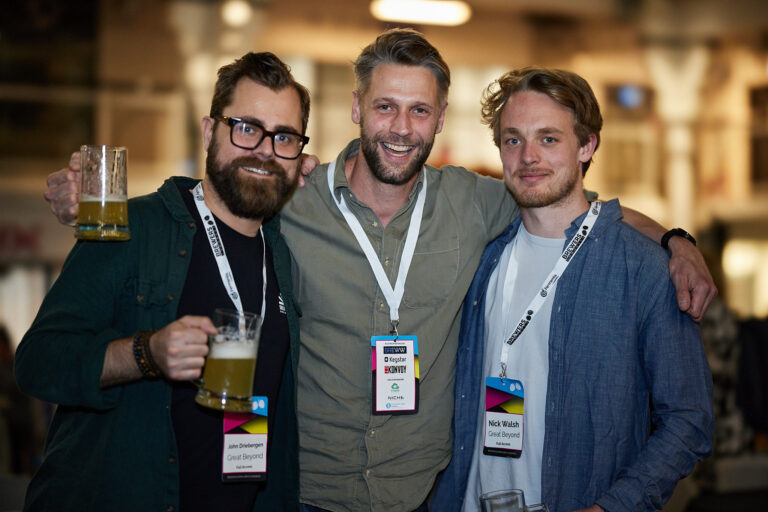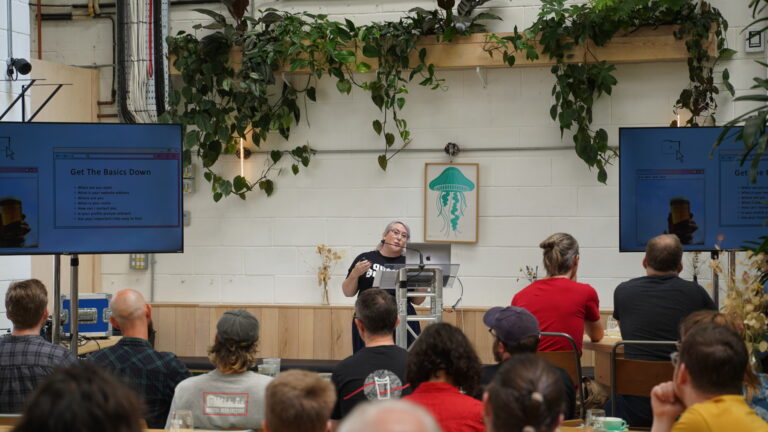The path to decarbonisation starts with a single step. Whether it’s measuring your impact, applying for a grant, or conducting your own feasibility studies and sharing them, the important thing is to start. And here Chris Lewington, the founder of Brew Resourceful, outlines some of the options available to you.
For those who attended the wonderful Brewers Congress this year, you may have seen the panel I hosted of ‘Decarbonising Heat in the Brewing Industry’, with panellists George Wade (Zevero), James Fawcett (Sustainability Consultant) and Dr Thomas Fudge (WASE).
I chose this topic because it’s one of the most significant challenges our breweries and the broader ‘craft beer industry’ (can I still say craft beer?) must overcome to achieve net zero
Little did I know, shortly after that panel, I would embark on this exact journey as my company Brew Resourceful has recently started working with Vault City in Edinburgh as we set in motion their path to reach the promised land of net zero. In this article, I want to combine the panel’s wisdom with my own real-life experience of trying to decarbonise heat at Vault City.
And if that isn’t enough of a hook, I have a bold statement, I believe right now is arguably the worst time to be investing in new heating technology.
Why Decarbonisation Matters
I look forward to the day when the business case for decarbonisation is engrained in our industry and we can all focus on how to get there rather than why we should. But we aren’t there yet and as we are generally finding it harder to make budget space, I do understand the need to repeat the business case. So let’s get into it.
Protecting Your Business
Energy price volatility is an ever-present threat. Breweries can shield themselves from market fluctuations and rising costs by investing in on-site energy production. Beyond energy stability, if you sell into pub groups or supermarkets, they will be introducing stricter guidelines on which businesses they deal with, remember your carbon footprint is included in their Scope 3.
Capitalising on Opportunities
Sustainability sells. According to SIBA’s Craft Beer Report, 48% of consumers consider a brewery’s sustainability credentials when choosing their beer. However, you must ensure that impartial data backs up your claims and that you communicate the data in an honest and progressive way.
Climate Responsibility
Ultimately every single one of us knows, that reducing your carbon footprint is the right thing to do.
Current Options for Decarbonising Heat
I have recently conducted feasibility studies on each of these for Vault City. So I can speak with some authority on them, although as we all know, no two breweries are the same.
Electrify Your Steam Boiler: This is becoming an increasingly popular move and it’s pretty straight forward. Replace your gas steam boiler with an electric one. Combine this with a solar array and a green energy tariff (the latter is essential) to significantly reduce your carbon footprint. However, there are some large drawbacks to switching gas for electricity.
– Electricity is expensive (3-3.5x more than gas) so their OPEX is high
– They require a huge amount of amps. For Vault City it would have been ~600amps, which is over the entire site allocation.
– They are inefficient. For 1 kWh of electricity you put in, you get 1 kWh of heat out. Which is a COP of 1.0
Heat Pumps: Easily the most promising technology out there. James explained them so well on the panel, but to paraphrase him, they work in a similar way to your refrigeration plant, upgrading heat in a series of compressors, they can turn ambient air into 80c water and even steam.
As you might expect, this is far more efficient than an electric steam boiler, currently, an Air Source Heat Pump that generates steam has a COP of ~2.5.
Sounds great, but unfortunately due to our energy pricing structure in the UK, our electricity costs more than Gas meaning we need a COP of at least 3.5 for us to run heat pumps for the same cost as Gas.
As Heat Pumps are such new technologies, their CAPEX costs are huge. And without a COP of greater than 3.5 you will likely never see a return on your investment. There will be some early adopters who pave the way, but for the smaller to medium brewer, the tech isn’t there just yet.
Biomass: Biomass boilers are far from new technology, in fact, the process of burning biomass (wood) for heat outdates us all.
However, they do have their role in breweries. Large breweries in remote areas use biomass as a self-sufficient route to heat energy in their breweries.
There are many biomass fuel sources, some of which are horrendous (virgin wood) and some still have credentials (wood waste, brewers spent grains).
Biomass boilers can create steam, but the CAPEX cost between 120c and 157c steam is substantial, so be prepared to settle for 120c steam. Ideal for the brewhouse, less so for heating water, steaming kegs etc.
Now the most interesting angle here is using brewer’s spent grains as your biomass fuel, it’s the ultimate self-sufficiency and sustainability story.
Many people will tell you it’s not possible and I have been scoffed at by many at the suggestion. Mainly due to the drying of the moisture content down from 80% to 20% and insufficient to fuel the daily needs.
But trust me when I say, I am close to cracking this case. For anyone who wants to chat about this, reach out, I would LOVE to talk to you about this.
Biogas: And finally, the simplest switch that we could do right now, is run our current systems but with biogas.
But the challenge is, creating it. Anaerobic digestion produces methane as a byproduct, which can be used as biogas. I looked into buying this and storing it on-site.
However, there are overwhelming challenges with compression, storage and transportation of biogas from large AD plants. So then I turned to creating biogas on-site. Here’s where it gets fun. There are 2 options.
Creating biogas from spent grains. It’s happening right now in Europe, check out Gösser Brewery in Austria.
They are entirely self-sufficient from the anaerobic digestion of spent grains, creating enough biogas to fuel their colossal brewery. Incredibly cool story and allows you to keep your existing proven heating technology
Dr Thomas Fudge’s work with WASE shows us our future in brewery sustainability, turning wastewater into a resource.
Traditional anaerobic digestion systems are slow and inefficient, but they use electro-methanogenesis to speed up AD processes while creating high concentrations of biomethane.
Here’s how it works – electro-active biofilms convert wastewater into biogas with higher methane content, offering a faster and more energy-rich alternative to conventional methods.
You will most likely create more biomethane than you would traditionally use, so most likely you will need a CHP (Combined Heat & Power) to harness the excess biogas into electricity. But with efficient uses of electricity and gas, there is a path to total self-sufficiency from your waste. Imagine that world.
The drawbacks here are ultimately the drawbacks we all face, CAPEX availability and brewery output.
Creating biogas from spent grains takes a colossal amount of space, and considering a large proportion of our breweries here in the UK are under railway arches, I think this could only work as a collaboration.
So What Should I Do?
Perhaps you see why I made my bold statement at the start. Right now, this is the most difficult time to invest in new heating technology. I believe we are a few years away from having the right solution in front of us. That being said, there are still options and breweries around the world investing in them, so it’s not that they don’t exist, but do they apply to our ‘craft’ side of the industry?
Practical Steps for Breweries
Look, I appreciate this article might seem a little bleak, with lots of complexions, and not a lot of clear-cut answers (welcome to sustainability).
But decarbonisation doesn’t have to mean an overhaul of your entire operation overnight. Small, strategic steps can make a significant difference. Here’s how to get started right now whilst you wait for heating technology to fit for you.
Measure Your Impact: Start by measuring your energy usage per hl produced. We all have gas/electricity meters. Use them.
But ultimately understanding your brewery’s carbon footprint is the foundation of any decarbonisation strategy. Companies like Zevero can help breweries measure, reduce, and report their emissions, providing a clear roadmap for improvement.
Reduce Energy Usage: Switching to a renewable energy contract is the simplest yet most effective sustainability move you can make right now. Yet it’s still not enough, as you really can’t beat simply reducing your usage. I conduct free benchmarking of your energy usage so you can see if your brewery is using too much energy (benchmarked against 95+ other breweries).
I also have written a bunch of guides on the Brew Resourceful website and talked a lot about this topic on my podcast, The Modern Brewer Podcast. So the free resources are out there. Use them.
Save Heat for Later: Thermal storage is the future. But it doesn’t have to be expensive. Frigid.Cloud is turning your beer-filled fermenters into thermal storage tanks, reducing loading on your refrigeration plant and maximising cheaper rates. This is affordable, available technology. Feel free to reach out and I can share more.
Collaboration – The Key to Success
The biggest strength our industry has is our collaborative nature, we should act on it every day. By sharing best practices, pooling resources, and supporting one another, we can accelerate the transition to a more sustainable industry even if our budgets are small.
The path to decarbonisation starts with a single step. Whether it’s measuring your impact, applying for a grant, or conducting your own feasibility studies and sharing them, the important thing is to start. As an industry, we have the creativity, resilience, and camaraderie to be the best. So, let’s get to work—together.
Chris Lewington has spent his career working with breweries of all sizes, helping them reduce costs, improve efficiency, and lower carbon emissions.
Over the past two years, his company, Brew Resourceful, has worked with leading names in the industry such as Northern Monk, Full Circle, Murphy & Sons, and Vault City to deliver practical, process-based solutions that enhance profitability and sustainability.
Chris is also a regular speaker at global brewing industry events, sharing his expertise on decarbonising operations and creating more resource-efficient breweries.
Photo: Noelia Amado Photography








